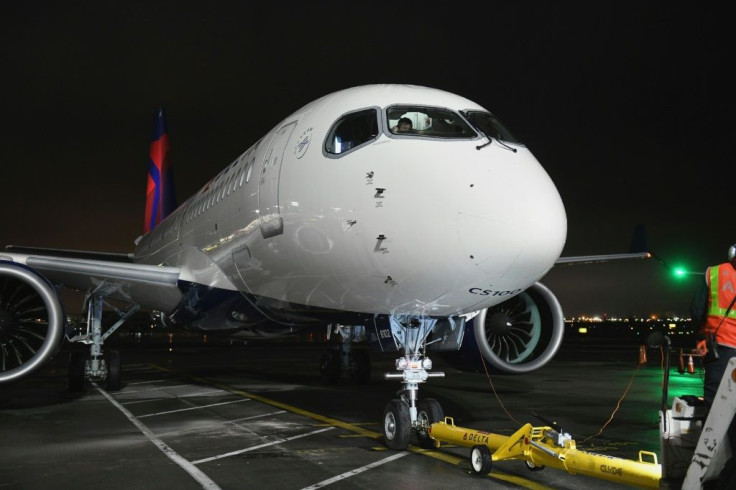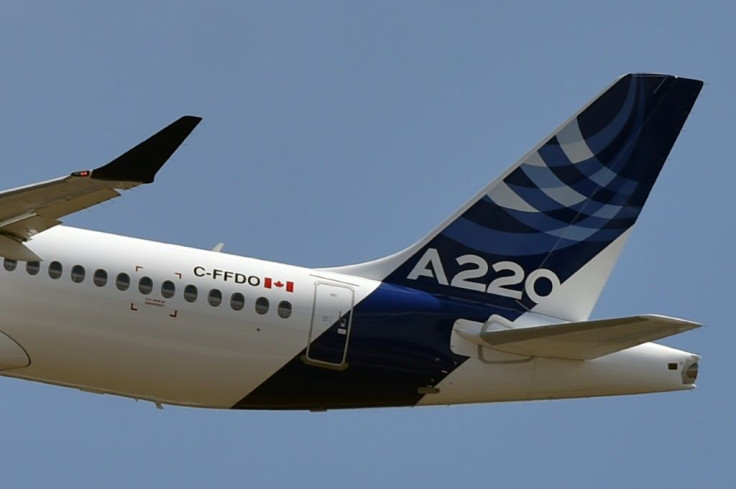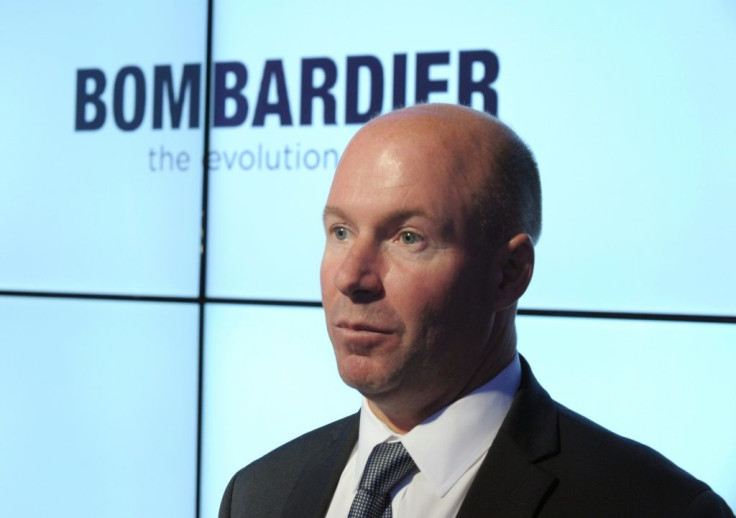Bombardier Exits Commercial Aviation With A220 Sale To Airbus

Once the third largest aircraft maker, Canada's Bombardier on Thursday announced the sale of its A220 stake to Airbus and the Quebec government, effectively exiting commercial aviation after a failed expansion.
Heavily indebted, the Montreal-based company is also reportedly in talks to sell its rail division to France's Alstom, which would leave the former Canadian manufacturing titan to build only business jets.
According to a statement, Bombardier will receive US$591 million from Airbus for its 33.58 percent stake in the joint Airbus Canada Limited Partnership (ACLP).
The funds are to be used to pay down its more than US$9 billion debt.
Bombardier had already sold in 2018 a majority stake in its C Series jetliner to the world's largest airliner manufacturer, which rebranded it the A220.
Thursday's transaction increases Airbus's share in the A220 to 75 percent, while the Quebec government -- which helped to fund its development -- retains a 25-percent stake (up from 16 percent). Quebec said it now plans to sell its stake to Airbus in 2026, three years later than scheduled.
"This transaction supports our efforts to address our capital structure and completes our strategic exit from commercial aerospace," Bombardier chief executive Alain Bellemare said.

The deal, he added, has been structured to safeguard more than 14,000 Bombardier aeronautics jobs in Quebec.
Over the past decade, Bombardier invested huge sums to develop three new aircraft, including more than US$6 billion on the A220, which would become the first new design in the 100- to 150-seat category of single-aisle aircraft in more than 25 years, and was to go head-to-head against giants Airbus and Boeing.

The company, controlled by heirs of its founder and inventor of the snowmobile in the 1940s, was looking to build on the success of its regional aircraft program in the 1990s.
But after Boeing successfully petitioned President Donald Trump's administration to impose financial penalties on Bombardier to keep it from selling its C Series planes in the massive US market, the Canadian company turned to Airbus to make use of Airbus's manufacturing heft and international reach for sales.
Its Learjet 85 program, meanwhile, was discontinued after losing US$2 billion.
Under Bellemare's stewardship, Bombardier also sold off over the past five years its water bomber, Q400 turboprop, CRJ regional jet and flight training divisions.
The A220 has been hailed by operators and travellers for its fuel savings, relatively quiet engines and cabin features.
It has a range of more than 6,000 kilometres (3,730 miles) and a seating capacity between that of traditional commuter planes and Airbus' A320 family, which can seat from 180 to 240 people and which has become a workhorse on medium-range routes.
Since taking over the program, Airbus has secured 658 orders for the A220.
But additional cash investments are required to ramp up production of the A220, and neither Bombardier nor Quebec were willing to pony up funds, amid forecasts of lower returns.
As part of the deal, Bombardier will be spared from having to make a US$700 million investment in the joint venture over the next year.
The company also reported on Thursday a US$1.6-billion net loss for fiscal 2019 on revenue of US$15.7-billion.
© Copyright AFP 2024. All rights reserved.





















